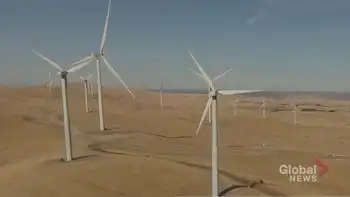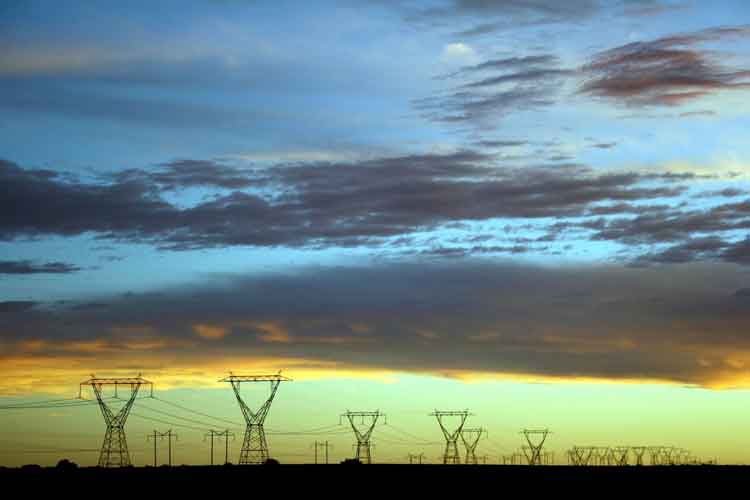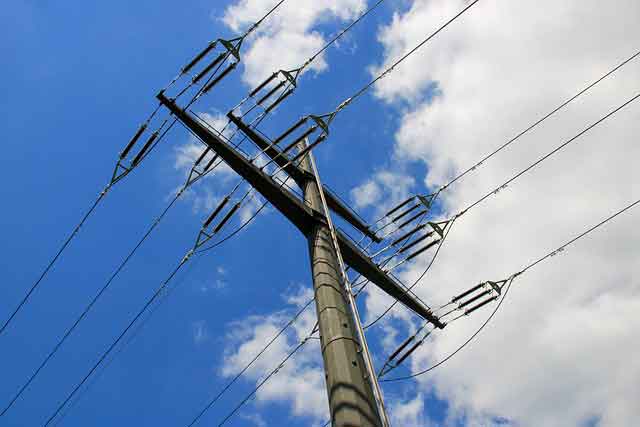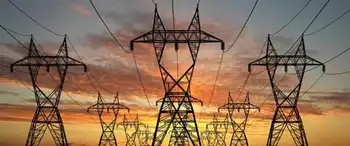Our self-created energy problem
By Investor's Business Daily
NFPA 70e Training - Arc Flash
Our customized live online or in‑person group training can be delivered to your staff at your location.

- Live Online
- 6 hours Instructor-led
- Group Training Available
The province of Alberta alone holds 173 billion barrels of crude. Some government analysts say that's enough to supply U.S. petroleum needs for 24 years.
This Canadian crude doesn't gush from the ground. The tarlike oil is mixed with sand and has to be extracted using heat. The process emits more carbon dioxide that conventional drilling.
Environmentalists, who've yet to see any oil they like, consider it dirty oil. A Sierra Club official hysterically calls tar sands the "dirtiest form of energy in the world."
James Hansen, the NASA scientist who is chiefly responsible for the global warming scare and is never shy about embellishing, suggests that continued production of Canada's tar sands "would be disastrous for life on our planet."
Obama has said the tar sands can be made clean. But that's not enough to relieve worried tar sand producers. He has taken a hard line on carbon emissions and publicly lamented "that oil sands create a big carbon footprint."
The tar sand interests are justifiably troubled that the man who a year ago promised while campaigning that anyone who built a new coal-fired power plant would be bankrupted by government rules is going to demand regulations that will wall off tar sand imports.
Already California has proposed environmental standards that would block from the state oil made from Canada's tar sands.
Barring tar sand imports would be all cost and no benefit. Taking an abundant reservoir of oil off the market will force prices higher.
That would be with no environmental advantage. Carbon dioxide is neither a pollutant nor a creator of global warming.
Though it might make up a growing portion of our atmosphere, CO2 is still a mere 0.038% of the gaseous layer that surrounds the Earth, and only 3% of that thin slice is released by man.
Despite its media-driven reputation as a killer, it is a weak and ineffective greenhouse gas.
If Canada is the Saudi Arabia of tar sands, then the U.S., as many have said before, is the Saudi Arabia of coal.
We have the world's largest reserves with 263 billion short tons, more than 27% of the Earth's coal. At current consumption rates, that's enough to supply the country for more than 200 years.
The Energy Department projects coal's importance will increase in coming years. Coal already provides about half of the nation's electrical power today and is expected to supply 60% by 2031.
That's only if it's not banned. During a campaign stop last year, Joe Biden promised an activist there'd be "no coal plants in America."
Al Gore, who has great influence on those who make public policy, has urged young Americans to engage in civil disobedience to stop building coal plants that don't capture carbon emissions.
Meanwhile, faceless, unelected bureaucrats in the Environmental Protection Agency, under orders from the administration, will review rules regulating CO2 emissions from coal-fired power plants.
Should the EPA place restrictions on carbon, the supply of electricity will fall as power generation is cut to comply with new regulatory limits. The electricity providers that aren't satisfied with cutting production will pass on to consumers the costs of buying expensive gear designed to capture CO2 emissions.
In the longer term, the private sector won't be able to keep up with increases in demand because it has been virtually forbidden by regulatory fiat from building new power plants.
The New York Times reports that even before Washington has acted, plans for 83 new coal plants have been blocked by state regulators or voluntarily withdrawn over just the last 30 months. Meanwhile, a new coal-fired plant comes on line each week in China.
The unpleasant outcome of all this will be higher electricity costs for consumers that will act as a tax increase, which will, as all tax hikes do, hurt the economy.
Blocking tar sand oil and weakening the country's ability to generate electricity because it's politically correct to oppose CO2 would be foolish.
It would dilute our quality of life, restrain economic growth and increase our dependence on hostile regimes.
That's not the change that voters were hoping for in November.











